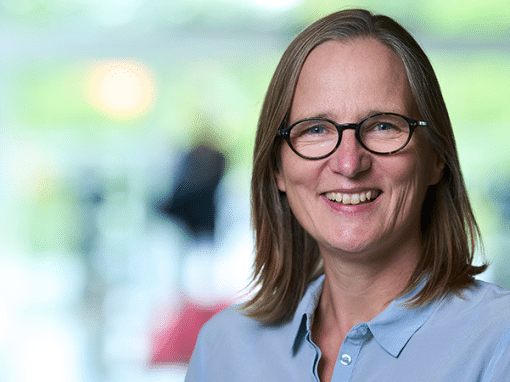Robot development has accelerated since working with the university

Technological companies need input from passionate students. A company in The North Denmark Region would not have developed as fast without the collaboration of university students. Continue reading to get the CEO’s and the former student’s perspectives on the interdisciplinary collaboration.
For a small business it can be crucial to collaborate with a knowledge institution.
This is what the CEO of Life Science Robotics, Keld Thorsen, believes.
For several years, Life Science Robotics has had close relationships with students from Aalborg University among others. This partnership has given the company a head start in rehabilitation robots.
- Collaborations, such as an innovation project, give us the opportunity to test our solutions to an extent that we would not have the possibility nor the competences to do in the company. In addition, we continuously receive new input from the students, and we are challenged with the latest trends, Keld Thorsen explains.
An innovation project with a student is one of the reasons why the robotic company expects to launch a brand-new generation of rehabilitation robots within a year.

It started as a student project
Life Science Robotics is currently testing a new version of the rehabilitation robot, Robert.
The development process started when Christian Ulrich were enrolled in Biomedical Engineering at Aalborg University. Christian Ulrich developed a prototype to make the current stimulation based on intention as his graduation project because Life Science Robotics wanted to expand their rehabilitation robot.
- There are many rehabilitation solutions that involve a small amount of stimulation to force a muscle movement. However, we only wanted the electrical stimulation to come when the patient himself tries to move – it ought to be determined by the patient’s intent. Christian Ulrich explains that it strengthens the neuroplasticity, hence the ability of the brain to form new relations and thereby relearn lost skills.
After his graduation, Christian Ulrich was employed in Life Science Robotics to refine his prototype of the intention based current stimulation. Today, he is working as a clinical project manager and development engineer in the company.
New opportunities for personal treatment
When the intension-based current stimulation is connected to the robots from Life Science Robotics, it provides completely new opportunities to adapt the rehabilitation to the individual patient.
– If the patient needs to rehabilitate their leg, we attach electrodes to measure the nerve signals on the legs. The electrode can pick up a very weak signal from the nerve and when it is detected, we apply an electronic stimulation while the robot ensures that the right movement is made, Christian Ulrich explains.
The development project is part of the Eurostar program, and the solution is currently being tested by a Dutch partner.
Core area in Danish Life Science Cluster
Keld Thorsen points to Christian Ulrich’s work as a shining example of what collaborations between knowledge institutions and SMEs can achieve.
– We would not have reached this level so quickly without the contribution of passionate students, he says.

Focus on knowledge-sharing between universities and companies
The knowledge bridge from universities and other knowledge institutions to companies and vice versa is a core area of Danish Life Science Cluster, which we call research and commercialization.
– As a cluster, our main objective is to bring companies, knowledge institutions and public players together in the work with innovation and growth within life science and welfare technology, the strategy of the Danish Life Science Cluster states.
Life Science Robotics has just become a member of Danish Life Science Cluster.
Fact:
Danish Life Science Cluster has on-going activities where companies can benefit from research, universities, and other knowledge institutions. See e.g. Beyond Beta REACT and follow our newsletter when we open new calls after the summer break.
For more information

